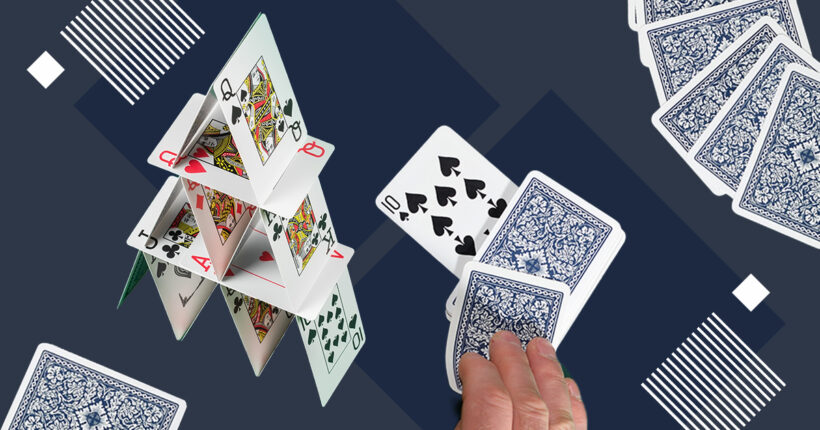
Choosing only ten solutions from among those we reported on during the month is always a difficult task. In January, Rubryka wrote a lot about solutions for veterans, women who are waiting for their loved ones from the war, and those who lost loved ones in it. We also launched a new cycle of materials dedicated to UNESCO reserves in Ukraine and how they live during the war.
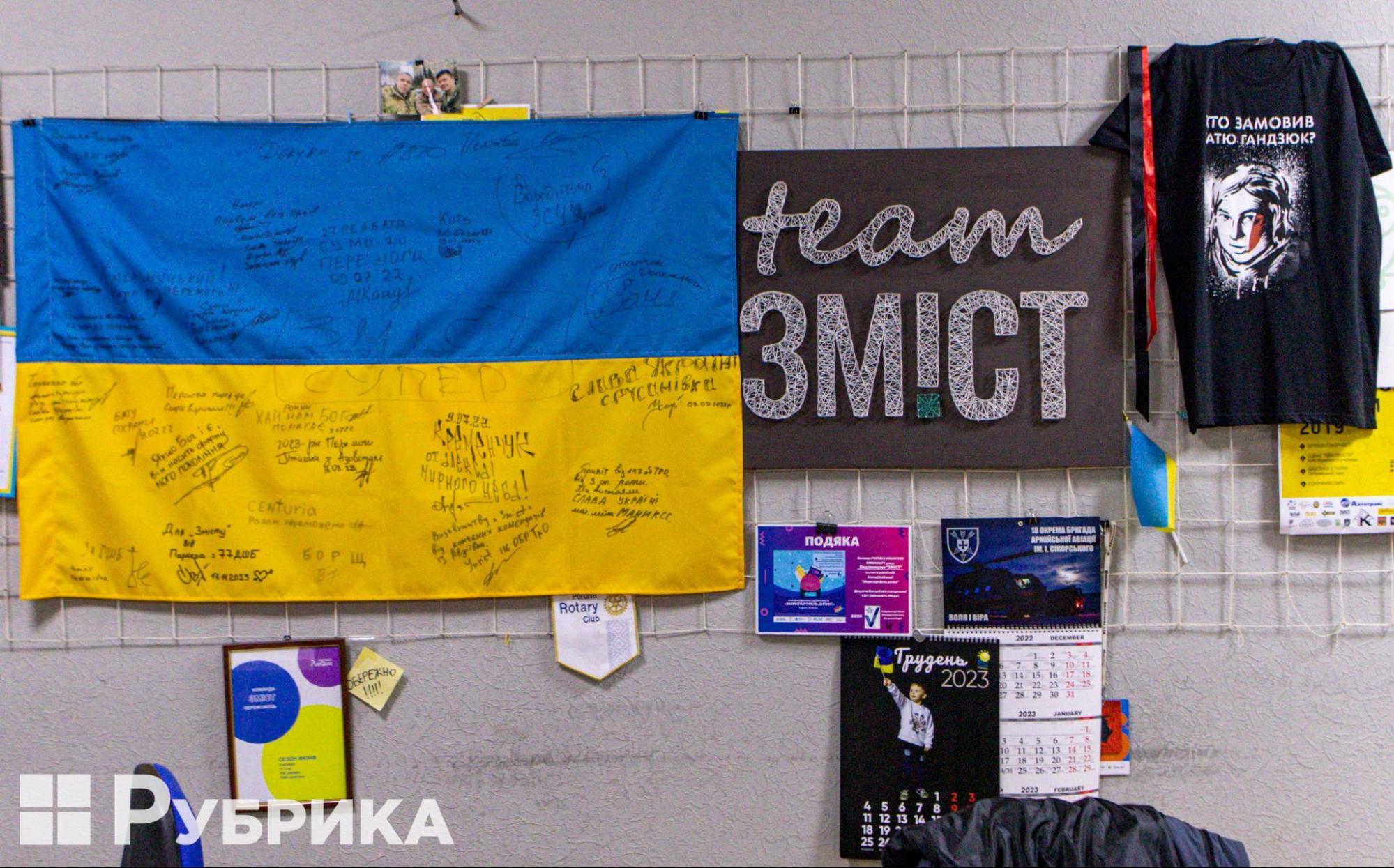
There are almost five million internally displaced persons in Ukraine today, and the main problem they face in their new communities is integration. Due to its absence, lack of employment opportunities, and bad conditions in a new place, Ukrainians often choose to return home under shelling. Such a challenge was noticed, in particular, in Poltava. Therefore, activists created the Zmist IDP Adaptation Center. Director Oleksandr Skrypai says that now it's not just about adaptation — Zmist helps IDPs integrate into Poltava life, move away from the status of visitors, and become locals. Read our photo report about how this solution works and how it helps displaced people in Poltava not only find a new circle of communication and an island of comfort but also get a job.
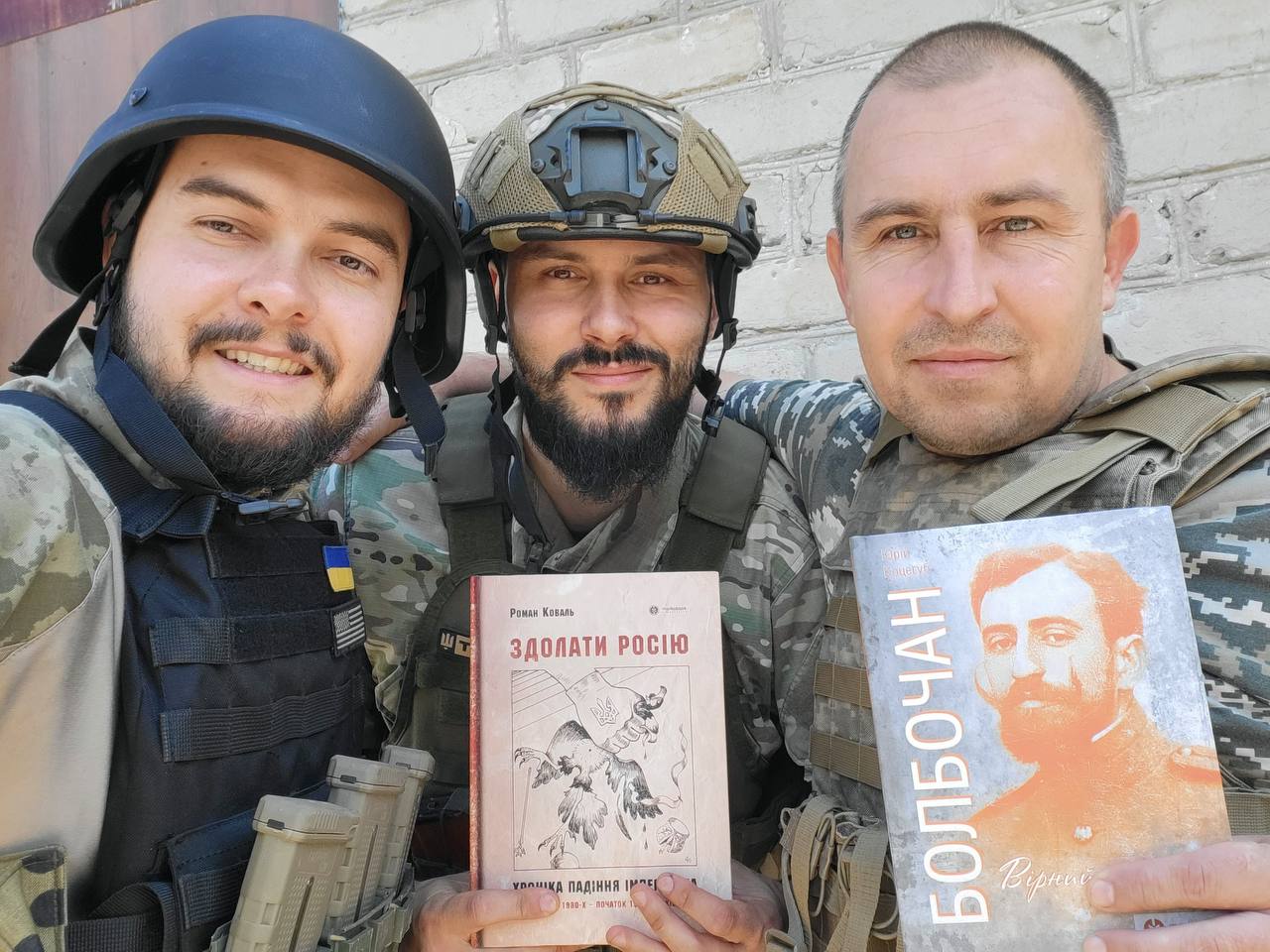
Military with books published by Marko Melnyk. Photo from the personal archive of Mark Melnyk
Having survived the challenges of the front line, soldiers return home and face new challenges. Difficult reintegration into civilian life and lack of jobs are the most common challenges for veterans. According to the Ministry of Veterans forecast, more than five million veterans may face these difficulties after the victory. Veteran businesses are a powerful tool that creates jobs and helps you find your place in your new civilian life. Rubryka talks about opportunities for starting a veteran business.
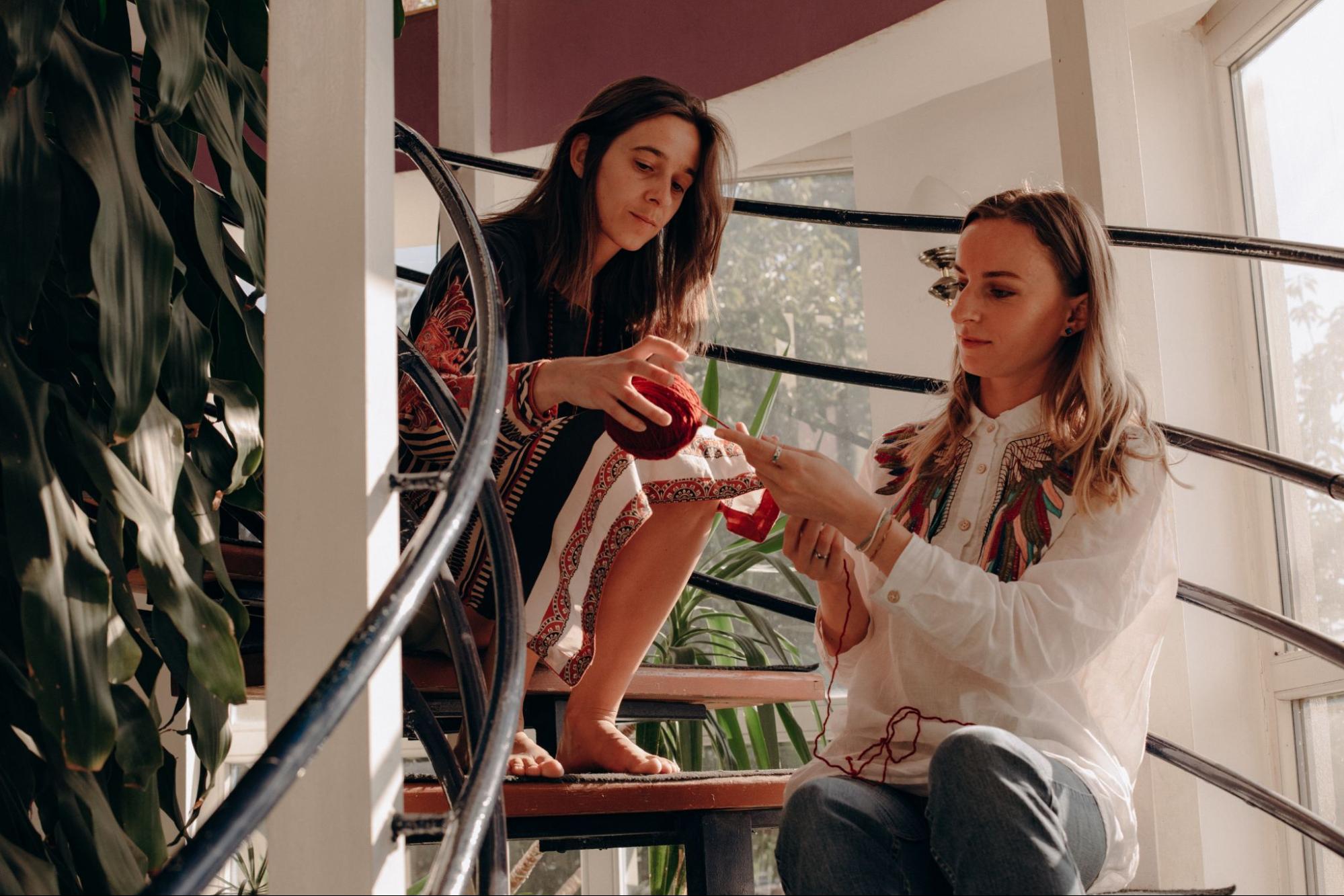
Тетяна Аллахвердієва та Тетяна Матвійчук. Фото: Дарія Гецко
People whose relatives are currently soldiers who have left home to defend Ukraine often remain invisible to society. Even their loved ones may not fully understand their experiences, which can increase feelings of loneliness and isolation.
In the Western Ukrainian city of Uzhgorod, psychologist Tetyana Matviychuk and craftswoman Tetyana Allahverdiyeva launched a project for people waiting for their loved ones to return from the war. The Povjazani initiative is a non-profit social project designed to support people waiting for their loved ones to return from duty, and help them find like-minded people. Rubryka dives into its work.
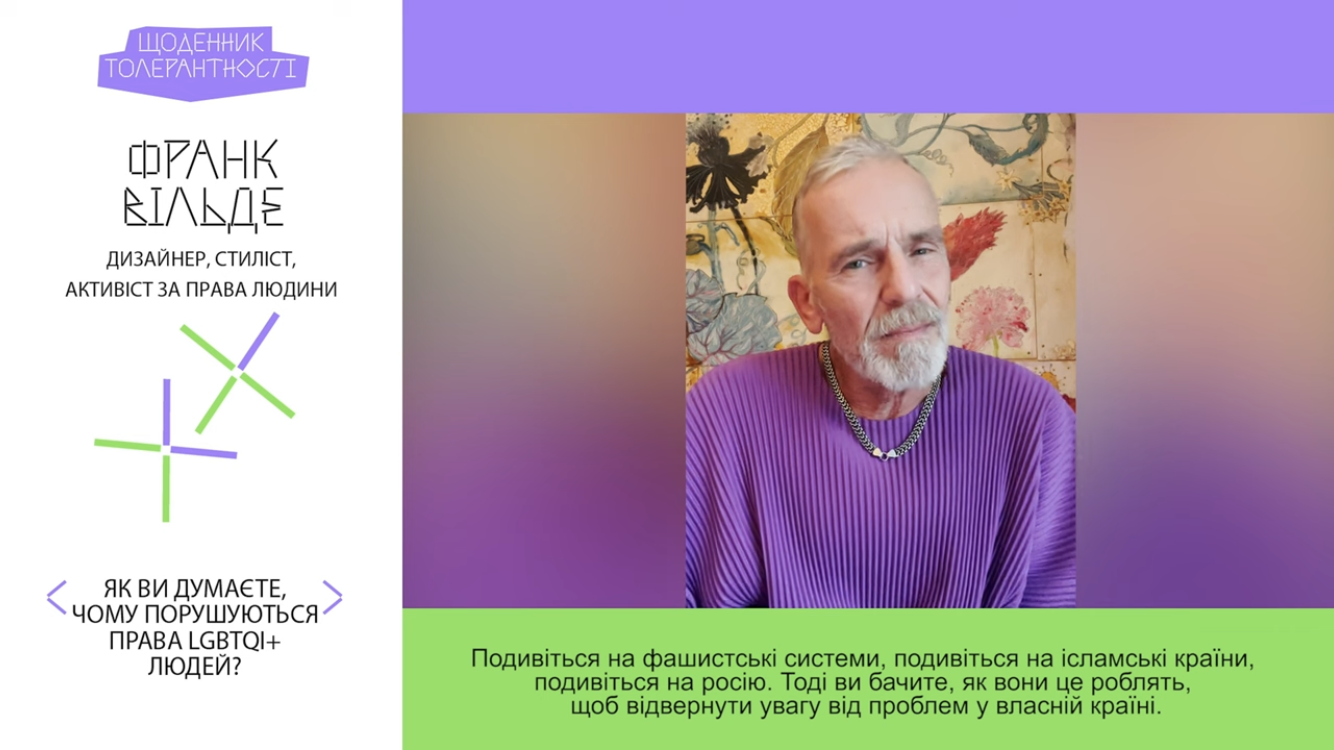
Frank Wilde in the issue about LGBTIQ+ rights.
With war continuing each day, war is all around in Ukrainian society — taking a psychological toll on everyone, and unfortunately manifesting in a higher level of social and domestic violence. Constant tension, repressed anger, and other negative emotions often spill out onto others in the form of hate speech and, in the worst case, physical force made worse by existing social attitudes of intolerance tolerance for people who have different lifestyles, behaviors, appearances or perspectives.
The Tolerance Diary initiative was launched in Ukraine to advance tolerance and draw attention to the social problems facing our society. The series of informative and educational videos on YouTube consists of advice from experts and well-known people of Ukraine — psychologists, activists, designers, artists, business people, public figures, athletes, military, and specialists in rehabilitation and equality issues. Rubryka tells about how this project works and how it contributes to the growth of tolerance in Ukraine.
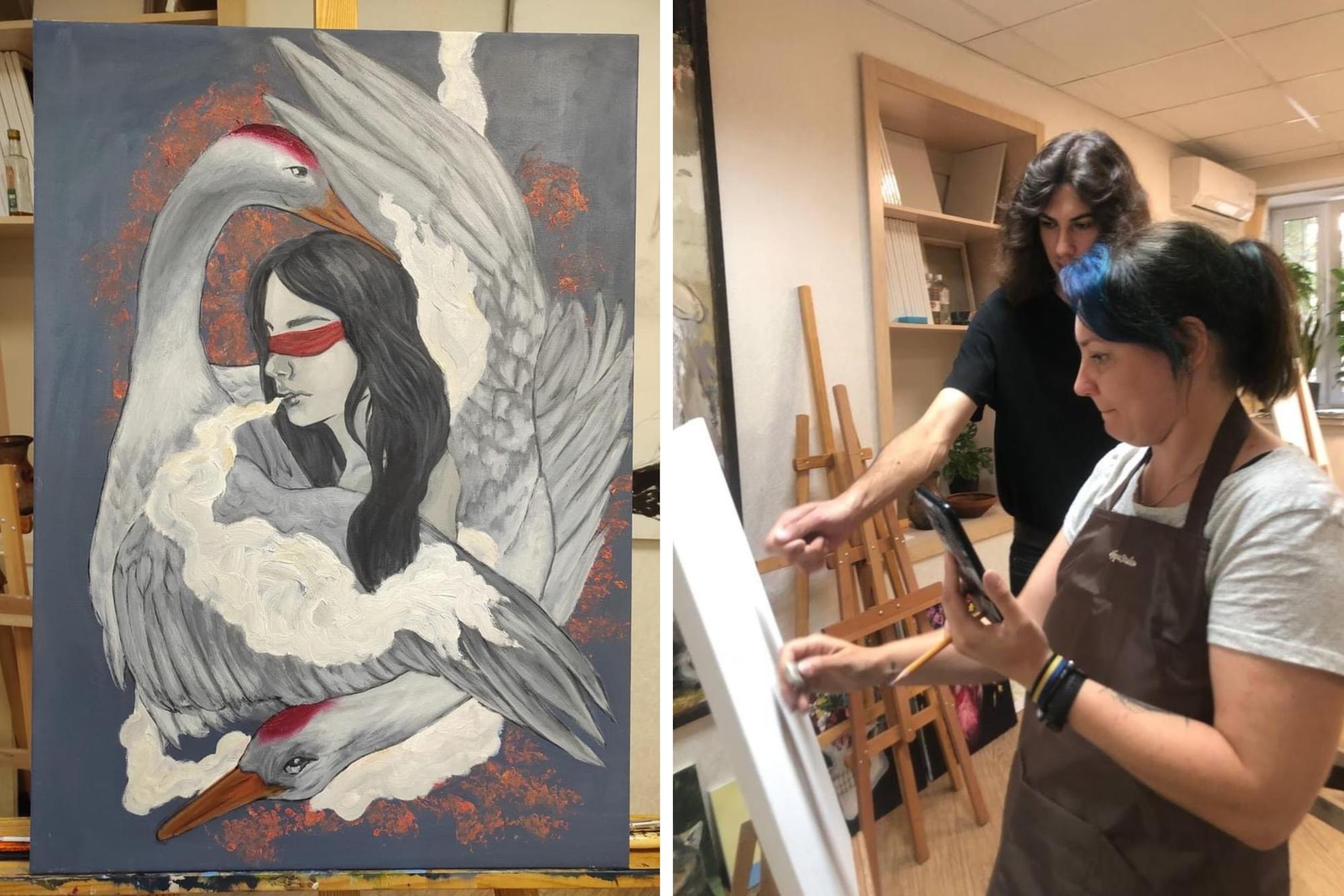
The work of Nadiia Lytovchenko.
Every day, Ukraine sees off its sons and daughters on their last journey. These are the heroes who went to defend and protect their family and country from the Russian invaders. Today, almost every Ukrainian family experiences the loss of friends or relatives. Learning to live again is very difficult for those from whom the war took away a loved one. And one of the ways to ease this pain is to share it with those who understand, to talk about it, to tell others about it.
The charity art therapy project Alive.True Love Stories aim to allow fallen soldiers' wives to start creating, find strength for life, and find new friends, a community that will understand and support them.
Rubryka explains how the initiative works, how to join it, and how to support it.
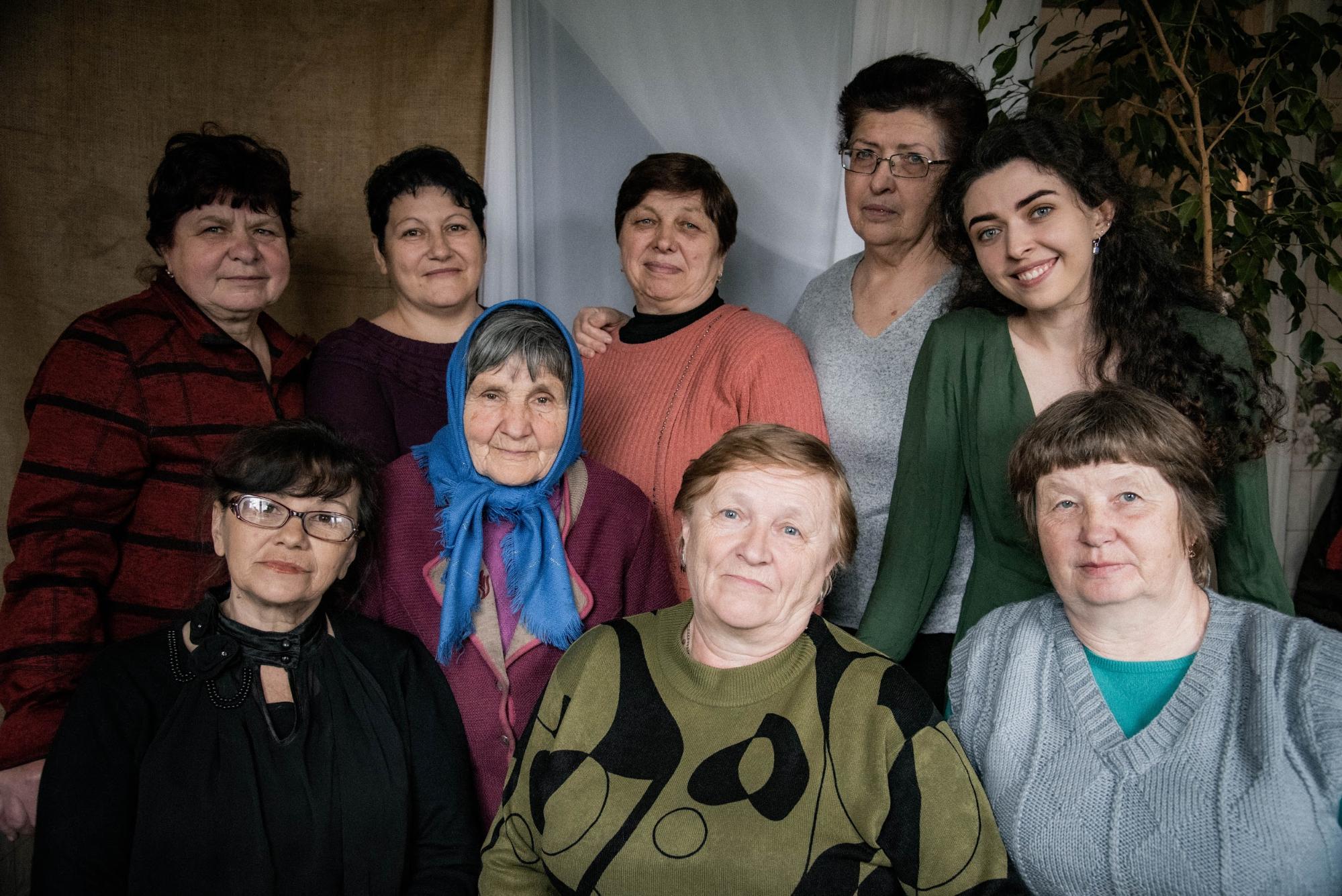
Kira Okhrimenko with the craftsmen of the project "Moim. Ridnym."
Unfortunately, elderly people, having retired, often find themselves "overboard." Despite the lovely term "silver age," for numerous individuals in Ukraine, it isn't associated with preciousness but rather with feelings of loneliness, social isolation, uselessness, and inability to fulfill their potential.
Nowadays, many elderly Ukrainian women have sons, daughters, or other family members serving in the military. Therefore, the issue of loneliness and the longing for purpose has not disappeared but has become even more pressing.
A few years back, in a village in the Sumy region, a project called "Moim. Ridnym" was launched to support women of a respectable age. It proved to be a solution to various social problems. Since its inception, elderly ladies from remote villages and hamlets in the region have been creating and selling various products such as herbal teas, aromatherapy items, linens, embroidered bags, knitted socks, decorative candles, and more. This allowed them to earn income for their basic needs and provided opportunities for socializing, connecting with others, and showcasing their creativity. The women shared their experience, wisdom, and perspective on the world through these cozy products with fellow Ukrainians.
Rubryka tells about the initiative — what it was like before the war and what it has become since it started, why it is important and how, despite all new challenges, the project continues its work.

Participants of the rehabilitation camp during classes on sports simulators.
When a person loses their sight, they can find themselves in a state of stress as their life changes radically, and a helping hand becomes essential – literally and figuratively. Unfortunately, the state is not currently focused on the medical rehabilitation of soldiers who lost their sight due to injuries. The social aspect falls on the shoulders of family and friends, who themselves need help to understand what the world of a blind person is like.
The public association "All-Ukrainian League of Organizations of Persons with Visual Disabilities – 'Modern View'" has initiated and implemented the Life After War project aimed at the rehabilitation of veterans who lost their sight while defending Ukraine. As part of the project, the team conducts field training and rehabilitation camps for service members who have lost sight, as well as their families.
Mykola Dubov, vice-president of Modern View, told Rubryka about how the project came about and how it works, as well as the successes and problems of veterans who lost their sight during hostilities.
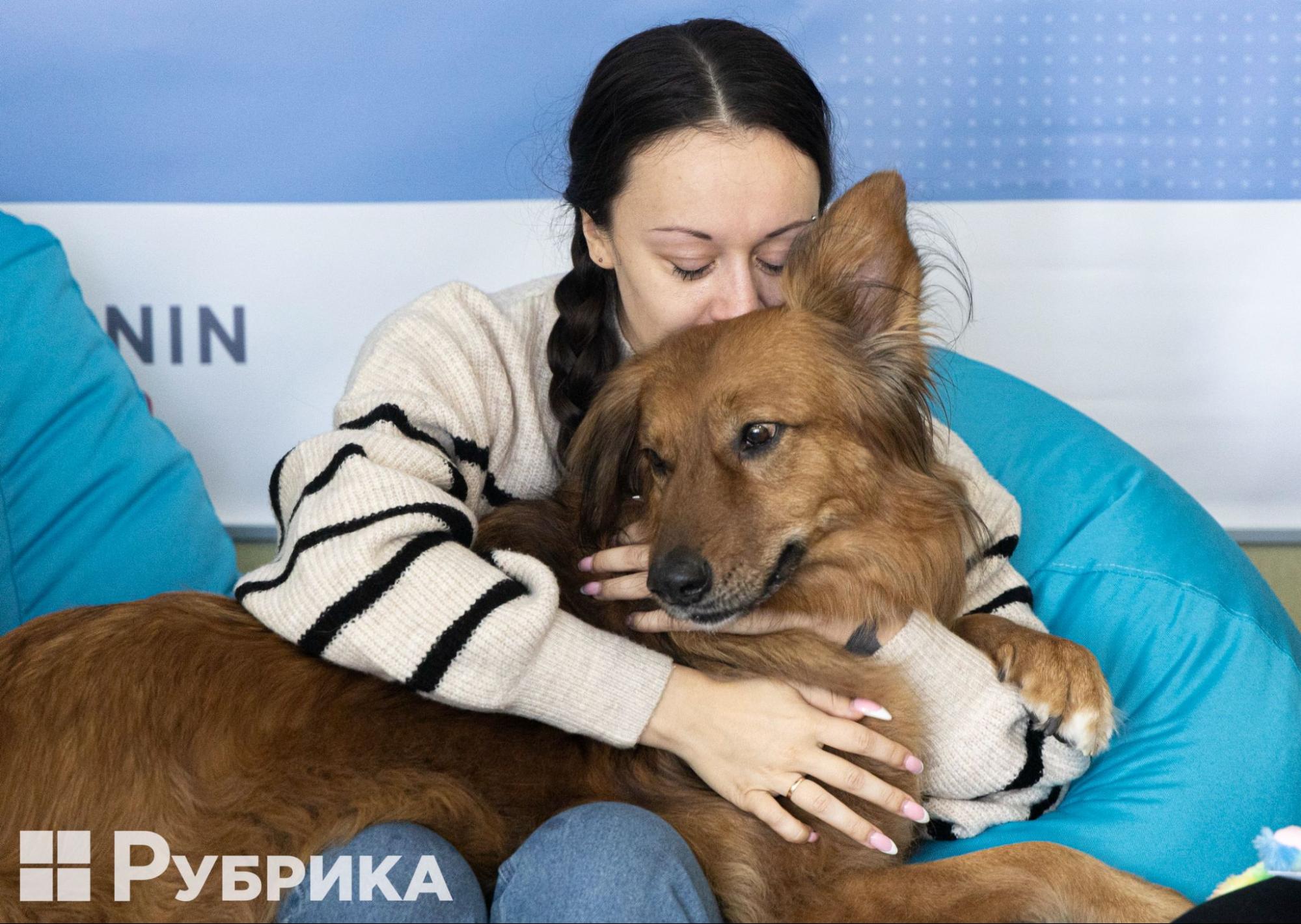
Oleksandra hugging a furry friend Chelsey.
Fear, loneliness, and anxiety. Coping with these feelings alone is difficult — it seems you are alone against the whole world. Oleksandra perfectly understands this condition — war forced her to flee from Mariupol to Kyiv.
"It is tough now because we left our homes. My husband is a soldier, and he is now serving at the front. It is difficult to cope with this alone. I don't have the resources, but I must support him," Oleksandra shares.
Due to the Russian aggression, many Ukrainians live similar life stories: someone has a loved one at war, someone has lost their home or job, and someone has given up because of exhaustion. You have to learn to live with all this.
It is never too late and never a shame to seek help from a qualified specialist. However, if you still struggle to express your feelings and trust another person, you should try a different approach. How about an unusual therapist who may not give you words of encouragement but will lend a helping paw?
Canister therapy is a special type of therapy that involves dogs in therapy sessions. The INNIKOS canister therapy center in Kyiv was established recently, but it already has regular visitors and invites all who are willing to undergo therapy with four-legged helpers.
Rubryka visited the center to show how the sessions take place.

Anna Pavlus is the founder of the "Wheelny" brand.
For people in wheelchairs, finding comfortable clothes is often a challenge. Ordinary clothes aren't designed for bodies in sitting positions for an extended time period – wide sleeves can get caught in the wheels, pants can sag and fall down – these are just some inconveniences people in wheelchairs face. Although comfort is a priority, aesthetics are also important.
After receiving an injury, fashion designer Anna Pavlus did not drop out of the business. During the full-scale invasion of Ukraine, she scaled it to a socially significant project. She managed to found the first Ukrainian brand of adaptive clothing for people in wheelchairs. Rubryka learned about how she dared to take such a step and what she has already managed to achieve.
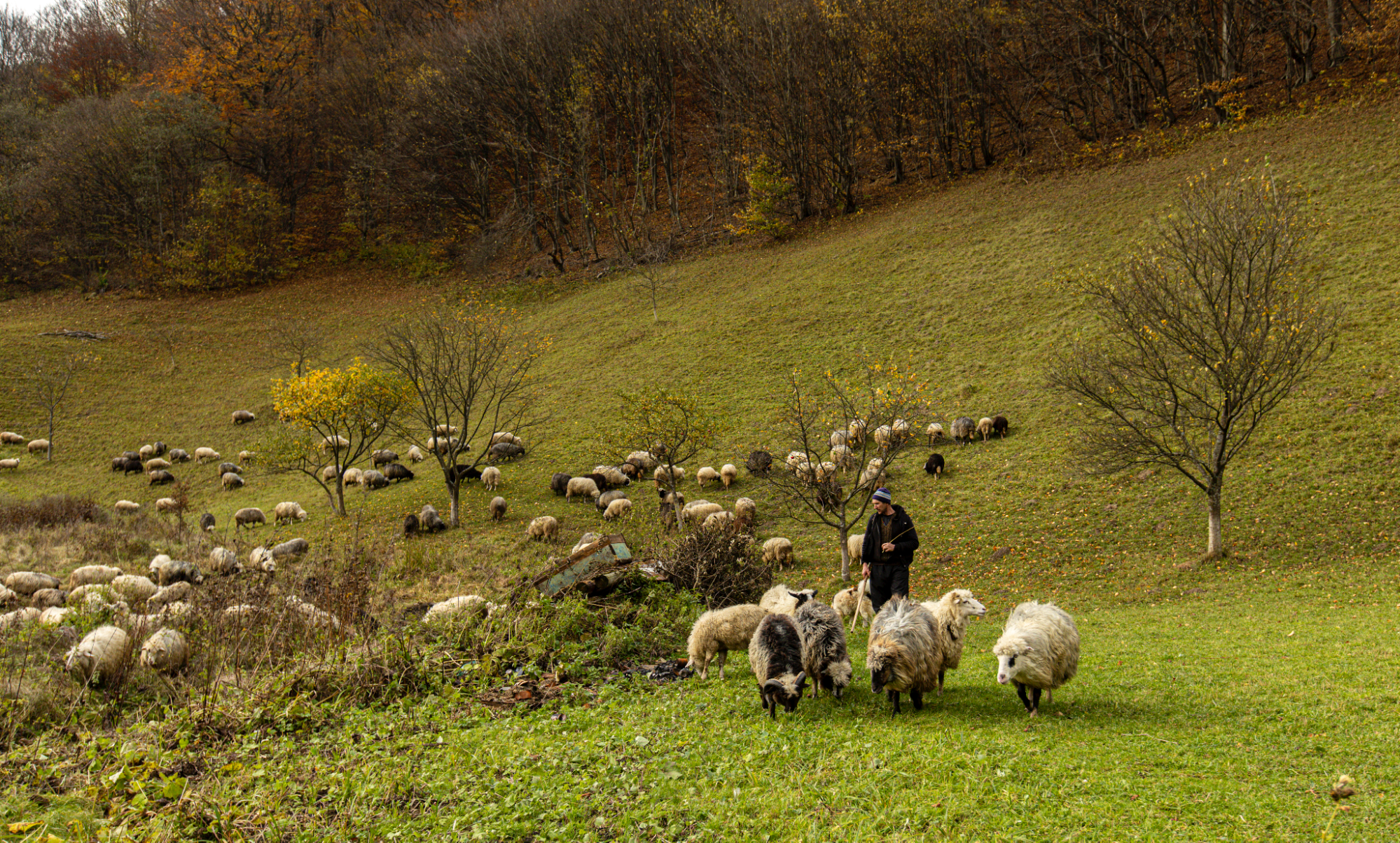
Люди тримають дедалі менше овець, і луки, що раніше викошувались — заростають. Яскравий приклад цьому — ліс молодих дерев позаду отари. Фото: Микола Тимченко
Ecorubic launched a series of articles about UNESCO biosphere reserves — those occupied, on the demarcation line, and deep in the rear. We tell how the war affects these territories so the world learns more about the lives of people and nature in Ukraine. This piece is one of a series of articles.
Surrounded by mountains on all sides, Rakhiv looks mystical. Covered in fog, it seems to be hiding in the Tisza valley. In 20 minutes of leisurely walking, you can walk from one side of the city to the other and simultaneously explore its surroundings, gradually spreading upwards. No matter where you are in Rakhiv, during the church bells, you will hear them from everywhere — the sound echoes off the hills and, one way or another, reaches your ears. Learn more about Rubryka's adventures in the reserves — here, and about the life of the Carpathian Biosphere Reserve during the war here.
Newsletter
Digest of the most interesting news: just about the main thing








